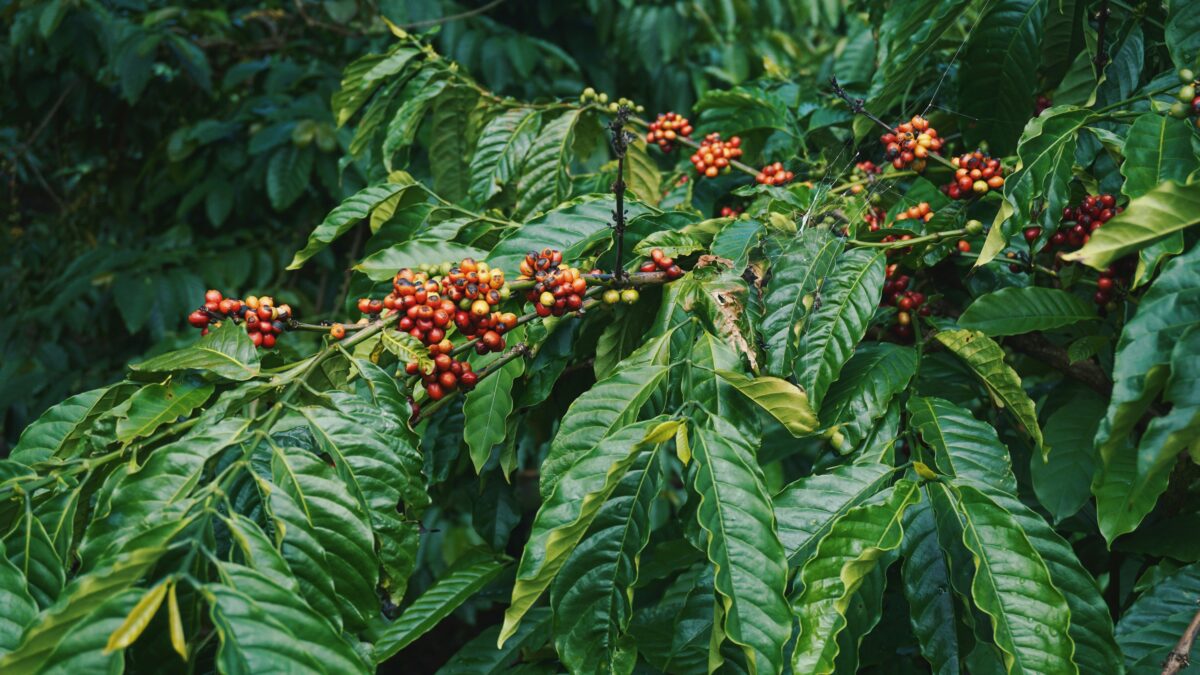Brewing Transparency: How Blockchain and Oracles Can Transform the Coffee Industry

In the aromatic world of coffee, where rich flavors and cultural significance intertwine, transparency and sustainability are becoming crucial factors for consumers. With growing concerns about deforestation, genetically modified organisms (GMOs), and even the emergence of lab-grown coffee, the coffee industry faces immense pressure to demonstrate its commitment to ethical practices. Enter blockchain technology, specifically oracles and on-chain solutions, which can revolutionize how we trace coffee from farm to cup. With the robust excelsa coffee bean leading the charge, we can create a system that not only protects our environment but also promotes fair trade and community welfare.
Understanding the Challenges
Deforestation
The coffee industry has long been associated with deforestation. As demand for coffee increases, so does the need for arable land, often at the expense of lush forests. This deforestation not only threatens biodiversity but also exacerbates climate change by releasing stored carbon into the atmosphere.
GMOs and Lab-Grown Coffee
While some farmers and corporations explore genetically modified coffee plants to increase yield and resilience, this raises ethical questions. Consumers increasingly prefer products that align with organic and sustainable farming practices. Additionally, lab-grown coffee is emerging as a potential competitor, but it lacks the rich narrative and flavor profile that traditional coffee offers.
Fair Trade and Transparency
Many coffee farmers struggle to earn a livable wage due to complex supply chains and a lack of transparency. Consumers increasingly seek fair trade products, but knowing which brands genuinely uphold these standards can be challenging.
The Promise of Blockchain and Oracles
Blockchain technology, often associated with cryptocurrencies, offers much more than just digital currency. Its decentralized and immutable nature can enhance transparency in the coffee supply chain. Oracles, which are third-party services that provide real-world data to smart contracts on a blockchain, play a crucial role in ensuring that information about the coffee’s journey is accurate and up-to-date.
1. Traceability
By leveraging blockchain, every stage of coffee production can be recorded on a secure, transparent ledger. From the farmer’s field to the consumer’s cup, every transaction can be traced, ensuring that the coffee meets ethical and sustainability standards.
For instance, when coffee is harvested, its journey can be documented in real-time through blockchain. Smart contracts can automatically verify that the coffee beans were sourced from sustainable farms that adhere to environmentally friendly practices. Oracles can feed real-time data into these contracts, confirming that specific criteria—like deforestation metrics or labor standards—are met.
2. Consumer Empowerment
Imagine a coffee shop where you can scan a QR code on your coffee cup to learn exactly where your beans came from, how they were cultivated, and whether the farmers were paid fairly. This level of transparency empowers consumers to make informed decisions and choose brands that align with their values.
By making this information readily accessible, blockchain can foster a deeper connection between consumers and producers. It cultivates trust, which is invaluable in an age where skepticism about product sourcing is rampant.
3. Addressing Environmental Concerns
Blockchain’s ability to track carbon footprints and environmental impact can help combat issues like deforestation and climate change. Smart contracts can incentivize farmers to adopt sustainable practices by offering financial rewards for maintaining forest cover or engaging in carbon sequestration.
4. Fair Trade Verification
The decentralized nature of blockchain ensures that once information is recorded, it cannot be tampered with. This feature can serve as an effective tool for verifying fair trade practices. For instance, if a coffee bean is labeled as fair trade, the entire supply chain—right back to the farmer—can be examined to confirm that all ethical guidelines were followed.
Excelsa Coffee: The Hero We Need
Amidst the complexities of the coffee industry, excelsa coffee stands out as a beacon of hope. This lesser-known variety is not only hardier in changing climate conditions, but it also plays a crucial role in carbon sequestration, making it an ideal candidate for on-chain traceability initiatives.
Hardier in a Changing Climate
Excelsa coffee plants thrive in conditions that may be detrimental to other varieties, making them an excellent choice for farmers facing the uncertainties of climate change. Their resilience allows farmers to continue producing coffee even as temperatures rise and weather patterns shift. By supporting excelsa cultivation, we not only safeguard the livelihoods of farmers but also contribute to a more sustainable coffee supply.
Carbon Sequestration
Coffee plants, especially excelsa, can absorb significant amounts of carbon dioxide from the atmosphere. By integrating carbon credits into the blockchain, farmers can be rewarded for their role in sequestering carbon, further incentivizing sustainable practices. This creates a win-win situation: farmers earn additional income while helping mitigate climate change.
Pioneering On-Chain Traceability
With excelsa coffee leading the way, the coffee industry can develop a robust on-chain traceability system. By recording every step of the coffee’s journey—planting, harvesting, processing, and shipping—on a blockchain, we can provide consumers with a transparent narrative about their coffee.
Consumers can trace their coffee back to the specific excelsa farms that produced it, complete with data about farming practices, certifications, and even carbon sequestration metrics. This transparency not only enhances consumer trust but also elevates the brand’s commitment to sustainability and ethical practices.
The Road Ahead: A Collaborative Effort
While the promise of blockchain and excelsa coffee is immense, realizing this vision will require a collaborative effort from multiple stakeholders, including:
Farmers
Farmers must be educated about the benefits of blockchain and the importance of sustainable practices. Training programs can equip them with the skills needed to leverage technology for better traceability.
Technology Providers
Tech companies can develop user-friendly platforms that make it easy for farmers to record data and for consumers to access information about their coffee.
Retailers and Brands
Coffee brands and retailers must commit to transparency and ethical sourcing. By participating in blockchain initiatives, they can differentiate themselves in a crowded market.
Consumers
Lastly, consumers have the power to drive change through their purchasing decisions. By choosing brands that embrace blockchain transparency, they can advocate for sustainable and ethical coffee practices.
Conclusion
The coffee industry stands at a crossroads, facing challenges that threaten both the environment and the livelihoods of farmers. However, with blockchain technology, particularly the use of oracles and on-chain solutions, we can usher in a new era of transparency and sustainability. By championing excelsa coffee as the independent coffee bean that leads the charge, we can ensure that the coffee we consume has a positive impact on our planet and supports fair trade for farmers.
As we take the first sips of this new era, we can feel good knowing that our choices matter. Each cup of coffee can tell a story of resilience, sustainability, and ethical practices—transforming our daily ritual into a powerful statement of intent for a better world.
